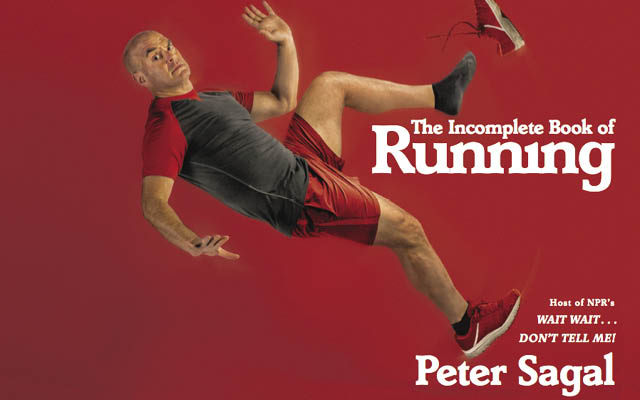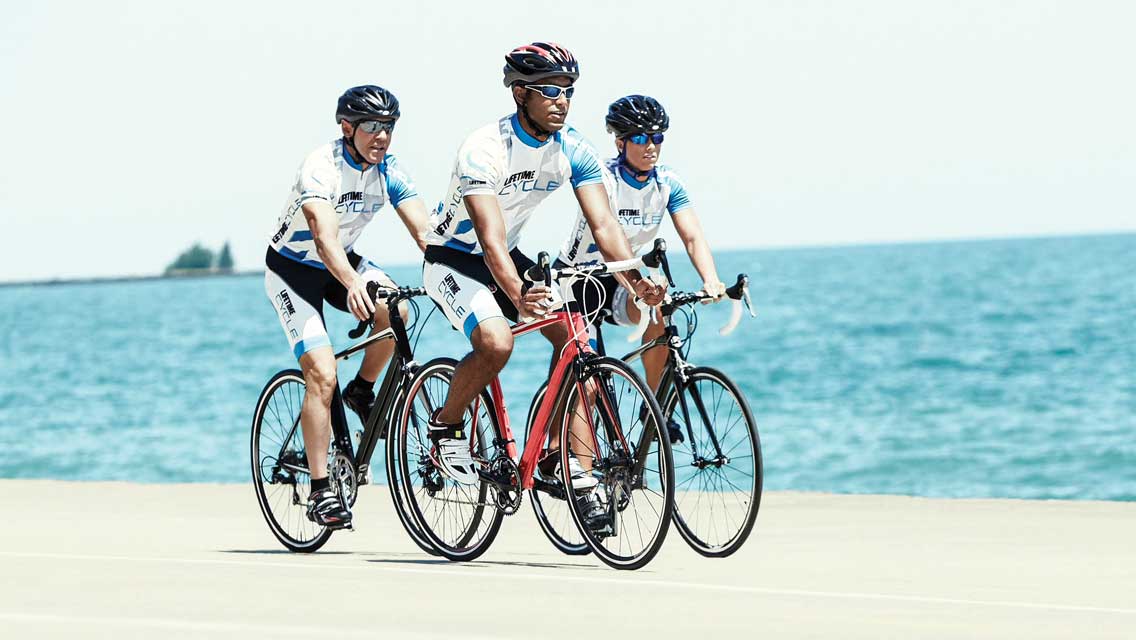Peter Sagal, host of National Public Radio’s Wait Wait . . . Don’t Tell Me!, is a runner with 14 marathons to his credit and a personal best of 3:10 that he’d be happy for you to know about. But beyond all that, he credits running with changing — and maybe even saving — his life. His recent book, The Incomplete Book of Running, is witty, observant, and insightful; it may even inspire you to lace up your shoes.
Experience Life | How has running changed your life?
Peter Sagal | It would be easier to list the things that running didn’t change, which is basically just my hairline.
Quite seriously, there’s little about me that running hasn’t changed or even completely transformed, for both good and bad. (For some of the bad stuff, see chapter 6.) If you were to focus only on the positive, I would list, in no particular order, weight loss, cardiovascular health, improved mood, increased endurance and energy, fewer illnesses, new and — in some cases — very close friends, improved discipline and focus, a chance to see interesting corners of the world and nature, a second career as a recreational athlete, a third career as a columnist on same, and a book contract. These results are not guaranteed for everyone.
EL | You recommend running sans headphones, which has proven to be a surprisingly controversial recommendation. Can you explain why you advise this?
PS | Because right now, somebody is reading this. While they’re reading this, they’re probably also listening to the news or music or maybe even watching TV out of the corner of their eye. When they’re done reading it, they’ll read something else, or listen to something else, or watch something else and they will do this, most likely, for every minute of their day until they fall asleep — perhaps literally, as some people ease themselves to sleep listening to podcasts or music. (Including my podcast, and I don’t know what to feel about that.)
So if you didn’t take out your headphones while running, it’s likely that you wouldn’t spend a second of your day simply with your own thoughts, and I think that’s a terrible thing. It’s not how humans have lived for all of history, until roughly the last decade, and I’m afraid it will have as deleterious effect on our evolved minds as our modern diets and lifestyles have had on our evolved bodies. In fact, a world in which we simply don’t have a moment to just think is the stuff of dystopian fiction, such as Kurt Vonnegut’s “Harrison Bergeron” or Orwell’s 1984. We forget that Orwell’s telescreens, in addition to monitoring the citizens of Airstrip One, also constantly “entertained” them, and couldn’t be turned off. Even Orwell never could have imagined that when we came to live in this awful world, devoid of simple silence, we would do it to ourselves. (Aldous Huxley probably came closest to predicting this future, in Brave New World.)
OK, so we need some silence and time to think. But why during a run? Well, first, if you’d prefer to just sit and meditate in a room, that’s fine, go ahead. But running provides a great opportunity to be alone with your thoughts, especially running outside. Freed from other people’s input, you can both focus on your own self, your body, your movement, your discomfort or lack thereof. But the movements are simple enough that you can also let your mind wander, following your thoughts where they might go. And if you’re outside (which I think is essential — even I can’t stand to run on a treadmill without something to distract me), then you have the whole world to look at, to examine, to be inspired by. Running outside sans headphones isn’t just a chance to listen to your thoughts, it’s a chance to see things you might not otherwise notice, and then think things you might not otherwise think.
EL | Many people complain that running is mindless: Do you find it mindless — or meditative and mindful?
PS | It can certainly seem mindless, and in fact, from one perspective, that’s one of its great advantages over other kinds of sports or fitness activities. It’s so simple, you don’t need a teacher or a group class or specialized equipment or a dedicated facility like a court or gym or dojo. The “threshold to entry” is literally your front door. But it’s possible and even necessary to move beyond mindless to mindful. Running is a chance not to distract yourself with activity (and one of the great things about complicated sports or classes or activities is that they are distracting; a good tennis game is a fine respite from your troubles) but to use an activity to focus on yourself, your own mind, your own body, where you are and what you’re doing.




This Post Has 0 Comments